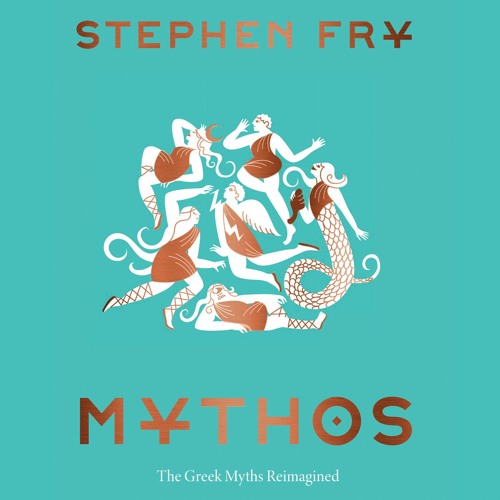

Fry’s distinctive voice undoubtedly adds something lively, humorous and intimate to myth’s psychological dimension. They deal respectively with the abduction of teenage Persephone and the theft by the newborn Hermes of his big brother Apollo’s cattle.

This is best revealed in his retelling of two Homeric Hymns, to Demeter and Hermes. Yet Fry’s ear is finely tuned to the quaint tonality of some of his ancient sources. Since there is no contents page, nor even an index, the eccentricity of his choice of myths would not be immediately apparent to a shopper browsing in a bookstore.

Fry’s collection is the equivalent of a book advertising itself as retelling “the stories from Shakespeare” that leaves out Hamlet, Othello, Lear, Julius Caesar, Romeo, Juliet and Henry V. Disappointment awaits readers expecting the myth cycles centring on Troy and Odysseus, Agamemnon and Clytemnestra, Jason, Medea and the Argonauts, Heracles’ labours, Theseus and the Minotaur, Perseus and Andromeda or the Theban royal house of Oedipus and Antigone. They derive mostly from Hesiod’s Theogony (the birth of the gods and the creation of the first few generations of humans), Apuleius’s Latin novel The Golden Ass (Cupid and Psyche), and Ovid’s Metamorphoses (Arachne, Midas, Echo and Narcissus). In fact he has selected a rather small group of stories. But his subtitle “The Greek Myths Retold” is misleading it implies a certain comprehensiveness.

One reason to do so is that Fry is unusually sensitive to the contemporary resonance in myths about gay gods and heroes and the transgender Hermaphroditus. So should a reader looking for an initiation into the thrilling world of the ancient Greek imagination choose Fry’s book? People who enjoy Fry's media personality and particular style of post-Wodehouse English drollery are in for a treat Countless family car journeys are enlivened by Simon Russell Beale’s audiobook of Atticus the Storyteller’s 100 Greek Myths. But do we need another version of the Greek myths in an already crowded market? Such treasured collections as Nathaniel Hawthorne’s Tanglewood Tales (1853), Edith Hamilton’s Mythology: Timeless Tales of Gods and Heroes (1942) and Robert Graves’s The Greek Myths (1955) are still in print. Most of these retellings were originally poetry – the epics of Hesiod, Homer and the philhellene Latin poet Ovid, the Athenian tragedies of Aeschylus, Sophocles and Euripides – in Mythos, Stephen Fry has narrated a selection of them in engaging and fluent prose. E ver since William Godwin persuaded Charles Lamb to retell The Odyssey as a novel for younger readers in The Adventures of Ulysses (1808), the myths of ancient Greece have been retold in contemporary prose by every generation.


 0 kommentar(er)
0 kommentar(er)
